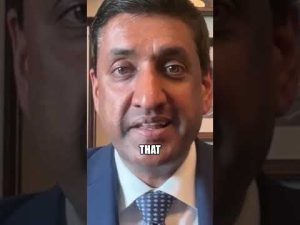In the wake of yet another tragic incident at a Christian school in Wisconsin, the media has once again leaped to propagate its preferred narrative. Almost immediately, the conversation shifted to gun control rather than examining the underlying motivations behind the attack. This trend raises significant questions about media integrity and the potential for bias, particularly against conservative values. It appears that whenever an event occurs that does not fit a convenient storyline, the media quickly adapts its focus, conveniently ignoring any implications that challenge their worldview.
The facts of the incident are troubling enough without the need to reframe them within a gun control debate. Many Americans are rightly concerned about the security of schools, especially those affiliated with religious beliefs. Rather than addressing the motivations of the assailant—who is often overlooked in favor of a broader conversation about firearms—the media resorts to a rehearsed script. This pattern underscores a growing anti-Christian sentiment and the hesitation to investigate the actual drivers of such violence, often rooted in societal divisions that are too complicated for a single narrative.
For instance, had the assailant been affiliated with a different ideology or belief system, the headlines might have focused on that rather than resorting to the blanket call for stricter gun laws. The scenario begs the question: Why is there such a discrepancy in how various motives are treated in the media? If an attack occurs at a specific institution, like a Christian school, or is perpetrated by someone with ties to particular political movements, the narratives shift dramatically based on how they align with prevalent media agendas.
Moreover, this selective reporting not only erodes public trust but also hampers genuine discussions about real solutions. It is essential to distinguish between the tools used in violent acts and the motivations for such acts. Focusing solely on gun access oversimplifies a multifaceted issue that goes far beyond weapons. The national conversation would benefit from addressing the reasons why individuals resort to violence, examining societal attitudes, and fostering a culture that values both security and understanding.
The trend reveals a troubling willingness among some media outlets to ignore critical context to fit a narrative. This not only undermines journalistic integrity but also alienates a significant portion of the American population who find themselves misrepresented. As the news cycle pivots from fact to fiction, it is crucial for Americans to demand more accountability in reporting and to question the motives behind the messages they receive. Only then can the nation engage in meaningful dialogue about violence, security, and the values we hold dear as a society.







